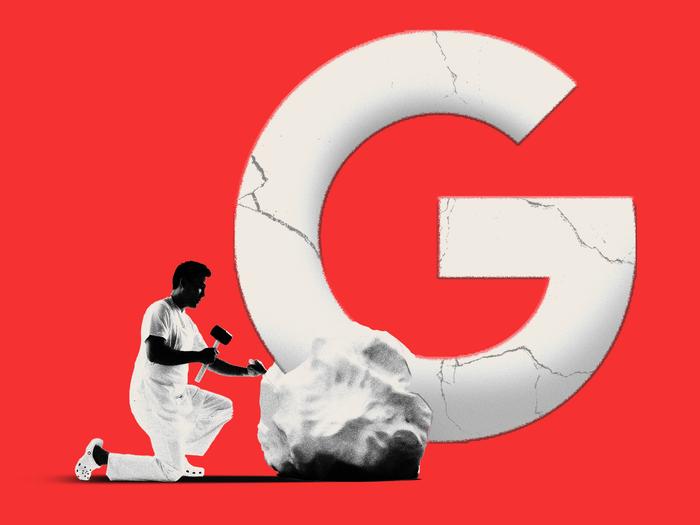
Google, a massive and sluggish traditional giant, was caught off guard by a flexible newcomer called OpenAI. Google's management had declared its transformation into an "AI-first world," but by the end of 2022, a previously unknown company had suddenly caught Google off guard: ChatGPT became an overnight sensation. Google, which had long touted itself as a leader in AI, seemed to have fallen behind.
First, in the following years, the search giant acted swiftly to turn things around. It rapidly restructured its key business units and aggressively pushed for the integration of generative AI into its core products. Google's latest AI model, Gemini 3, was released this month and received impressive reviews. Crucially, Gemini 3 was first applied to Google's core business, search, on its launch day, powerfully demonstrating that after three years of development, Google was well-prepared.
However, Google still faces significant challenges in reshaping its image in the AI era. OpenAI's first-mover advantage has made ChatGPT the "Shuje" of AI, and changing this situation will not be easy for Google.
Furthermore, and most importantly, how will Google maintain a healthy internet ecosystem once artificial intelligence consumes the internet? To keep pace with its competitors, Google is reimagining search, no longer treating it as a directory, but as a conversation, eliminating the tedious scrolling and clicking. What this means for the future of the internet remains an open question. However, Google's business may not only survive this self-disruption, but may even thrive.
Secondly, Google employees felt both frustrated and relieved when OpenAI's ChatGPT was released. Some had worked on similar projects, but those projects ultimately failed to leave Google, and seeing much smaller competitors gain an advantage was inevitably frustrating. Others saw it as the starting gun for the AI race, and the green light for Google to finally showcase its AI to the world.
Furthermore, Google has never lacked talent and technology. Before ChatGPT, employees at DeepMind, Google's parent company's AI research lab, had already begun researching large language models, but leadership worried that releasing a chatbot prone to bias or errors would provoke strong opposition.
Furthermore, over the past three years, Google has seemingly effortlessly disrupted itself. The company just announced its first quarterly revenue exceeding $100 billion. Its cloud computing business, long trailing behind Amazon and Microsoft, is now experiencing rapid growth. Its dedicated AI chips, developed internally for years with slow progress, are now suddenly in high demand from companies eager for more powerful computing capabilities. Current and former employees believe Google's biggest advantage lies in its complete technology stack needed to handle the booming development of AI. It offers numerous products, including Gemini, Search, and Maps, used by billions of people. It has a strong team of researchers dedicated to building cutting-edge AI models. Moreover, it possesses a cloud infrastructure that not only supports all this internal R&D but is also being used by its biggest competitors.
However, Google can no longer afford to stand still. Industry analysts at EMARKETER, a sister company of Business Insider, predict that Google's share of the search advertising market will fall below 50% for the first time next year, and EMARKETER predicts that by the end of 2026, Google's market share will drop to 48.9%.
Overall, Google has begun to show the world how it can adapt to protect its core revenue streams. However, the implications of the booming development of generative artificial intelligence for the long-term health of the internet, and how it will affect websites that provide information rather than products, remain unclear.

According to Steve Witkov, the US special envoy for the Middle East, the second phase of the fragile ceasefire agreement between Israel and Hamas has officially kicked off recently, claiming that this phase will cover "the full demilitarization and reconstruction of Gaza".
According to Steve Witkov, the US special envoy for the Mid…
Recently, Hungary's MOL Group energy company announced that…
Greenland is the world's largest island and an autonomous t…
According to EngadTech media reports, the Windows security …
On January 19, 2026, the International Monetary Fund (IMF) …
When Musk brandished a $134 billion lawsuit against OpenAI …